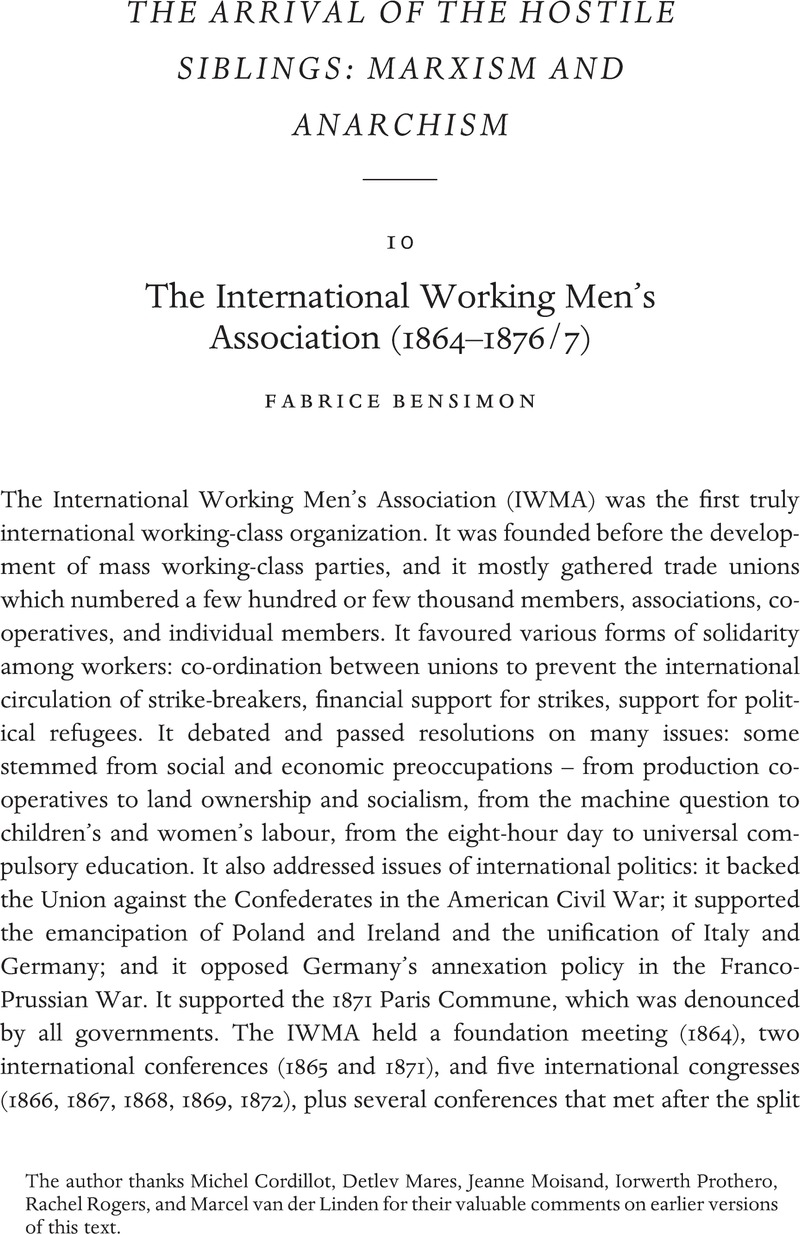Book contents
- The Cambridge History of Socialism
- The Cambridge History of Socialism
- The Cambridge History of Socialism
- Copyright page
- Contents
- Figures
- Maps
- Tables
- Contributors to Volume I
- Abbreviations
- Introduction to Volume I
- Part I Beginnings
- Egalitarianism
- Early Socialisms
- The Arrival of the Hostile Siblings: Marxism and Anarchism
- Part II Negating State Power
- Index
- References
The Arrival of the Hostile Siblings: Marxism and Anarchism
from Part I - Beginnings
Published online by Cambridge University Press: 03 November 2022
- The Cambridge History of Socialism
- The Cambridge History of Socialism
- The Cambridge History of Socialism
- Copyright page
- Contents
- Figures
- Maps
- Tables
- Contributors to Volume I
- Abbreviations
- Introduction to Volume I
- Part I Beginnings
- Egalitarianism
- Early Socialisms
- The Arrival of the Hostile Siblings: Marxism and Anarchism
- Part II Negating State Power
- Index
- References
Summary

- Type
- Chapter
- Information
- The Cambridge History of Socialism , pp. 232Publisher: Cambridge University PressPrint publication year: 2022



